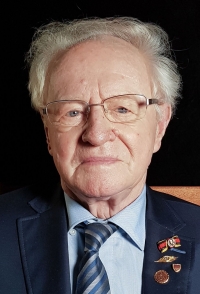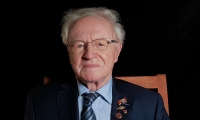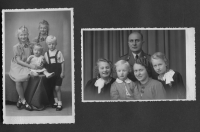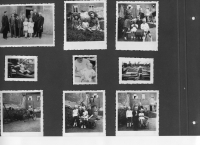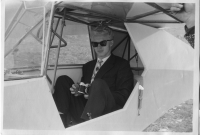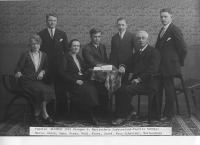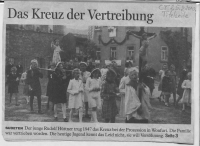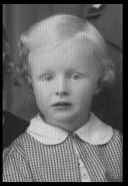At nine I had to dig mass graves, but I don’t blame the current generations for it

Stáhnout obrázek
Rudolf Hüttner was born on 1 January 1937 into a German chemist’s family in the West-Bohemian town Stříbro. In 1938 his father won the auction for the house of Jewish family Rosenberg in the town centre, where he moved his business. However due to his father being conscripted, it was mostly managed by his mother, also a chemist. After the war the drug store supplied the American garrison in neighbouring Bavaria with photographic paper, but in October 1945 the family was forced to leave Stříbro. The family made its way through the concentration camps in Vlašim, Bystřice and Modřany, but were also made to do forced labour for Czech farmers, despite the father’s serious war wounds. This meant the children had to work extra hard. The worst conditions were probably in the Bystřice camp, where hunger sent the boys out on sorrel-picking raids at the edge of the camp and at night they were woken by the cries of the presumably tortured inmates. At Bystřice, nine-year-old Rudolf was also forced to dig mass graves for the German dead and watch as guards knocked out their gold teeth. During forced labour for a local farmer he also remembers Czech children throwing snowballs full of rocks at him as a German. He was made to go to school with the Czech farmers’ children, but not speaking Czech, he learnt nothing there. He was deported to Germany in 1946. Their beginnings in Germany were difficult for the family, since they weren’t accepted in the community and had to make a living producing home-made Christmas decorations and small drugstore items. It was years until the father once more succeeded in establishing a drugstore in Bamberg, handing it down to his son in 1974, who managed it until the year 2000. He started a family with his wife, a deportee from Poland, and has repeatedly visited his home town of Stříbro since 1986. In the 80s and 90s, together with his older sister, he helped renew the forgotten tradition of Marian feast day celebrations in the town of his birth.
